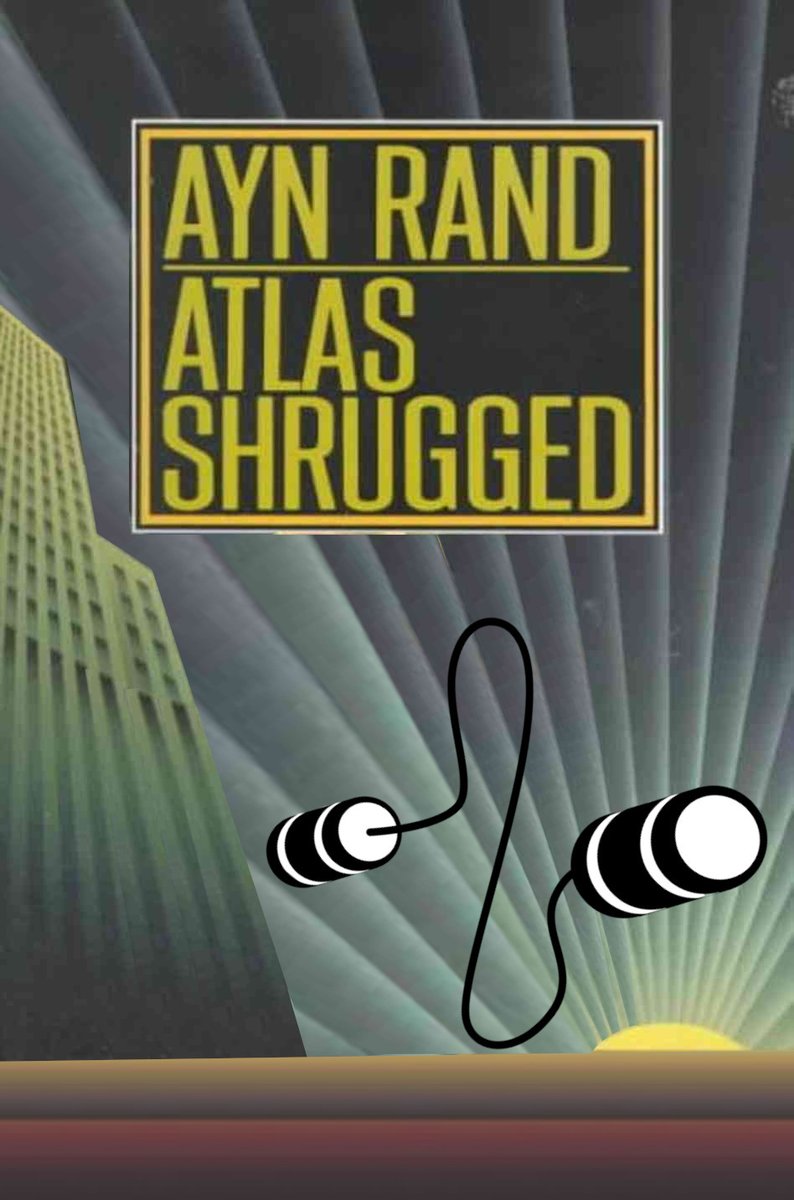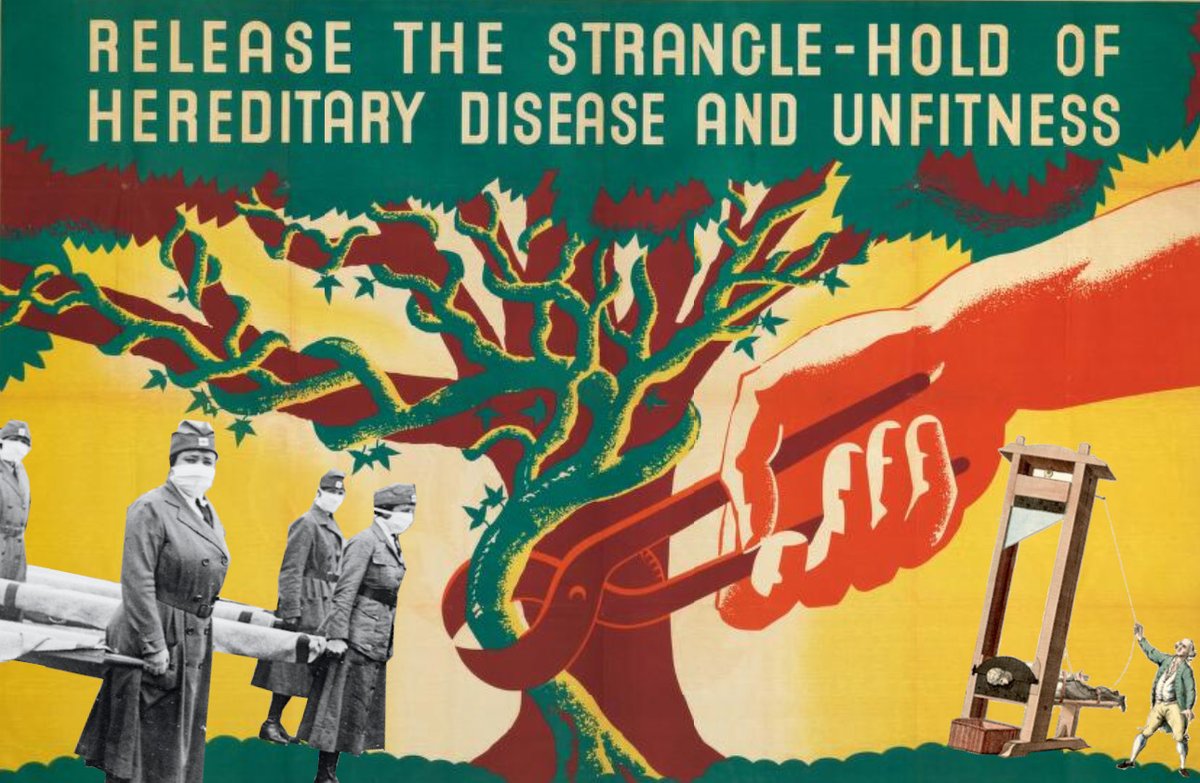
With the deplatforming of forums where trumpists and right-wing figures congregate, there's a lot of chatter about whether and when private entities have the right to remove speech, and what obligations come with scale.
1/
1/

The most important - and overlooked - area of this discourse is the role that monopoly plays, and the role that anti-monopoly enforcement could play.
2/
2/
In short, the fact that being removed from Twitter and the app stores and Facebook and Amazon is so devastating is best addressed by weakening those companies by spreading out our digital life onto lots of platforms.
3/
3/
Not by strengthening them by giving them formal duties to either carry or remove speech based on its content. These duties will justify all kinds of anticompetitive activity, because only a very profitable company can afford to fulfil them.
4/
4/
It also turns the same companies that failed horribly to craft and uphold moderation standards into private-sector arms of powerful state actors (like domestic surveillance agencies) who defend their right to monopolize the digital sphere as necessary for national security.
5/
5/
(recall that the Pentagon intervened in the DoJ's breakup of AT&T in the 1950s, successfully arguing for a stay of execution on the grounds that the Korean War could not be effectively persecuted without AT&T's help - the company stayed intact for 30 years after that)
6/
6/
Competition in the platforms is important, but it's not the whole story. The First Amendment was drafted for newspapers, and most contemporary communications law comes from broadcast and cable regulation. The internet is not a newspaper or a TV station, after all.
7/
7/
The discussion of the difference between the American revolutionary era (or the heyday of broadcast TV) and the present moment focuses on technology, but there's a much more important difference to take account of: the presence or absence of a public sphere.
8/
8/
The First Amendment contemplates both a diversity of speech forums (newspapers, cafes, halls) alongside of public spaces that are TRULY public, owned by the people through their governments and tightly bound by 1A as to when and whether rules about speech can be enforced.
9/
9/
So if the Masonic Lodge won't let you give a speech from its stage, and the cafe throws you out for arguing, and the newspaper won't let you publish an op-ed, you can stand outside of those establishments with a sign or a bullhorn, leafleting and speaking your piece.
10/
10/
The government can still restrict your speech on the public sidewalk or in a public park, but not according to its content - only according to "time and manner" (for example, enforcing a noise ordinance after 9PM or ticketing you for blocking traffic).
11/
11/
The biggest difference between a world where we are locked indoors and connect to one another via the internet and the world we left behind is that there are NO PUBLIC SPACES on the internet.
12/
12/
If a cafe kicks you out for your speech, you can picket the public right of way out front. If Twitter kicks you out for your views, you have no constitutionally guaranteed right to stand at its digital threshold and tell everyone who enters or leaves that you got a raw deal.
13/
13/
Now, the state provision of digital services isn't an unmitigated good. US governments at all levels have proven themselves to be utterly surveillance-addled, in thrall to the fallacy that spying on everyone will make us all safer.
14/
14/
But surveillance fears aren't why we lack democratically controlled tech. For that, you can thank the same right wingers who are so exorcised about deplatforming today, who, for a decade, have been the useful idiots of telcoms monopolists in the fight over public broadband.
15/
15/
American cable and telco monopolists have divided up the country so that the best most of us can hope for is a duopoly, while many others are burdened with monopoly carriers, and millions live in broadband deserts with no high-speed internet at all.
16/
16/
The poorer you are, the more your broadband costs and the worse it is. The more rural you are, the worse your broadband is and the more it costs. Homeowners with good broadband see their assets appreciate. If your home is outside a monopolist's profit zone, its price drops.
17/
17/
The internet barons like it that way. When Frontier went bankrupt last year, we got to see its internal docs. Guess what? If you have no choice other than Frontier, it treats you as an "asset" because you will pay more for worse service.
eff.org/deeplinks/2020…
18/
eff.org/deeplinks/2020…
18/
Frontier cares about its share price (its execs are mostly paid in stock, not cash), and share prices are rigged by influential analysts who downrank any company that makes a capitol expenditure that takes more than five years to pay off.
19/
19/
That's why Frontier decided to walk away from the $800,000,000 in profits it would realize on a ten-year investment in fiber for three million households who currently make do with Frontier's failing copper network, which often consists of wires draped over trees.
20/
20/
We've been here before. For decades, you had to live in an urban, affluent area to get electricity; your country cousins burned coal for dinner and used oil-lamps to read by. The New Deal electrified the nation, extending universal service regardless of the business-case.
21/
21/
Electricity became a human right, and the US government extended it across the nation (though structural racism meant that it arrived late for majority Black settlements).
Long before covid, underserved towns realized that their very existence depended on decent broadband.
22/
Long before covid, underserved towns realized that their very existence depended on decent broadband.
22/
The initial experiments with municipal fiber were incredible, jaw-dropping successes. Towns that invested in fiber saw a vast expansion of job opportunities, access to global information and services, and new blood from telecommuters who relocated from big cities.
23/
23/
The telcos fucking hated this. How can you sell flaky access to copper wires draped over shrubs for $80/month when the city is wiring people up to networks that are 1,000-100,000 TIMES FASTER at a lower price?
24/
24/
In a competitive market, companies would have improved service and lowered prices to compete. Luckily (for monopolists), there's a cheaper solution: buy off state legislatures so they pass laws banning municipal broadband.
25/
25/
These laws were promulgated to GOP-dominated statehouses across the country, passed by right wing lawmakers who told their constituents they were "keeping government out of the internet."
26/
26/
This is a line that their footsoldiers dutifully parroted during the Obama years, then signed up to Trump FCC Chairman Ajit Pai's order that reversed a late-term-Obama FCC order banning state laws that interfered with municipal fiber project.
27/
27/
Unfortunately (for the right), reality has a well-known left-wing bias. 700+ US towns and cities have municipal fiber. They are the only Americans who consistently express satisfaction with their ISPs. Most of these towns vote Republican!
muninetworks.org/communitymap
28/
muninetworks.org/communitymap
28/
Woe betide the rural "red" town that lacks municipal fiber. These have been mostly abandoned by cable companies, so their cable/DSL duopoly has become a DSL monopoly, with prices rising and quality of service falling.
ilsr.org/monopoly-netwo…
29/
ilsr.org/monopoly-netwo…
29/
Which brings me back to the First Amendment and public sidewalks. All those people who are trying to find a way to support the "free market*" and also justify demanding that dominant platforms be ordered to carry their speech are living in a hell of their own making.
30/
30/
* Adam Smith popularized the term "free markets" to describe markets free from "rentiers" who collect money without adding value...such as cable monopolists. He DEFINITELY didn't mean "markets free from government regulation."
31/
31/
Because here's the thing: your ISP - and Twitter, and Facebook, and Amazon - is a private company. It is not subject to the First Amendment. It can have any rules it wants about which lawful speech it will tolerate. It can sling your ass out the door on a whim.
32/
32/
You know who's bound by the First Amendment? You know who can't suppress your speech based on its content? You know who has to answer public records requests about why you got booted out of its service?
Your local government.
33/
Your local government.
33/
If you had a $70/month, 100GB fiber in your rural house, you could run a kickass P2P messaging server, and while you'd be right to worry about (covert, illegal) government surveillance (use encryption, kids) on that line, you would 100% have recourse if you got booted off.
34/
34/
It's not an automatic home run. The First Amendment has exceptions, even beyond "time and manner," and has been substantially eroded by GW Bush and his successors, in the name of fighting terror, animal rights activists and water defenders.
35/
35/
But a lawsuit against your town council for nuking your Turner Diaries fanfic server is a hell of a lot more likely to succeed than griping about Twitter mods failing to grasp the "irony" in your Auschwitz jokes.
36/
36/
The right's war on municipal broadband was its biggest self-own of the 2010s. And while it's not true that "a conservative is a liberal who's been mugged," it might be true that "a municipal broadband activist is a conservative who's been kicked off Twitter."
37/
37/
And this is one of those causes (like shutting down private prisons, or opposing foreign wars of aggression) where a substantial slice of the left and the right can come together (at the most local of levels!) to really Get Shit Done.
38/
38/
Because the other great victims of America's monopolized broadband are people of color, poor people and working class people (often the same people). They live with digital redlining, where they pay 2X for 1/100th the speeds of their affluent neighbors a block away.
39/
39/
They're the ones whose kids are doing homework in Taco Bell parking lots (and getting flunked on their tests because creepy remote proctoring services penalize them for taking their tests in a beat up hatchback and not a private room).
40/
40/
The ones who can't videoconference with dying relatives in ICUs or doctors for telemed consults. Who can't apply for work-at-home jobs, or just play games and watch movies and upload their fun Tiktoks and Youtube videos.
41/
41/
The current system serves about 300 senior execs at telco monopolists, and a few thousand investors, and savagely fucks over everyone else. Even rich people in big cities usually can't buy fiber at any price.
42/
42/
It's time for our four decade Atlas Shrugged LARP to end. It's time for a bipartisan fiber consensus.
Image: Olaus Linn (modified)
thenounproject.com/term/tin-can-p…
CC BY:
creativecommons.org/licenses/by/4.…
eof/
Image: Olaus Linn (modified)
thenounproject.com/term/tin-can-p…
CC BY:
creativecommons.org/licenses/by/4.…
eof/
ETA: If you'd like to read this as a blog-post, here's a permalink that's free from surveillance, tracking and ads (unlike, say, Twitter): pluralistic.net/2021/01/17/tur…
• • •
Missing some Tweet in this thread? You can try to
force a refresh






